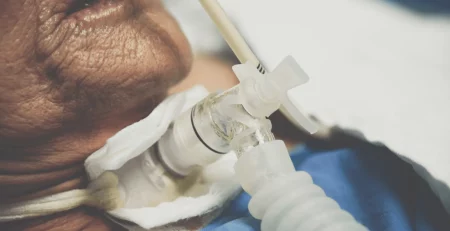Weaning from mechanical ventilation, a process commonly referred to as “weaning assistance,” is a significant milestone in the recovery journey of patients who have relied on ventilators to breathe. It’s a journey toward regaining independence, and it’s a path that often requires specialized care and support. In this post, we will explore the process of weaning assistance and the critical role it plays in helping patients reclaim their independence.
1. Assessing Readiness: Weaning assistance begins with assessing the patient’s readiness to breathe independently. This involves evaluating lung function, overall health, and the underlying condition that led to the need for mechanical ventilation.
2. Collaborative Team: A collaborative team approach is essential. Respiratory therapists, pulmonologists, nurses, and other specialists work together to design and implement a personalized weaning plan.
3. Gradual Reduction: Weaning assistance involves a gradual reduction in ventilator support. The patient may transition from full ventilator support to using different modes of ventilation, such as pressure support ventilation.
4. Respiratory Exercises: Patients are often guided through respiratory exercises and therapies to strengthen their respiratory muscles and improve lung function.
5. Monitoring Progress: Continuous monitoring of the patient’s condition is vital. Regular assessments help the care team determine the effectiveness of the weaning plan and make necessary adjustments.
6. Emotional Support: Weaning from a ventilator can be emotionally challenging. Patients may experience anxiety or fear. Providing emotional support and counseling is an integral part of weaning assistance.
7. Communication: Communication is critical during the weaning process. Patients need to be able to express their comfort level, concerns, and physical sensations to the care team.
8. Family Involvement: Family members are encouraged to be actively involved in the weaning process. Their presence and support can be a source of comfort and motivation for the patient.
9. Adaptability: The weaning process is adaptable. The patient’s needs and progress guide the pace and adjustments of the weaning plan.
10. Celebrating Milestones: Every small achievement along the weaning journey is a reason to celebrate. Each milestone represents progress and a step closer to independence.
At Respira Adult Care, we understand the complexities of weaning assistance. Our team of experienced healthcare professionals is dedicated to providing personalized care and support throughout this journey. We believe in empowering patients to regain their independence and lead fulfilling lives.
If you or a loved one is on the path to weaning from mechanical ventilation, know that you’re not alone. At Respira Adult Care, we are committed to supporting your progress and helping you achieve the remarkable milestone of independent breathing. Your journey to greater independence begins with us.







